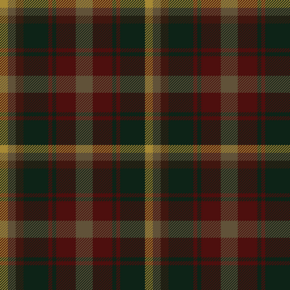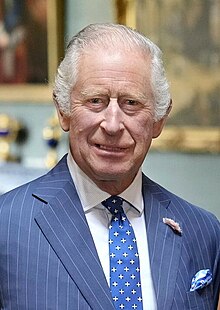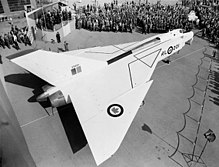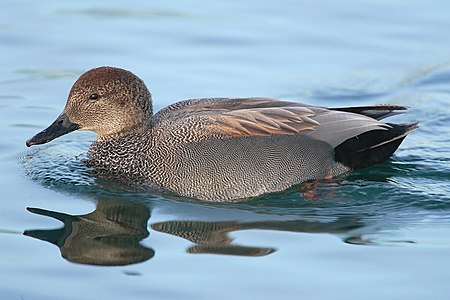Portal:Canada
| Showcase | Content | Contributing |
Introduction
Canada is a country in North America. Its ten provinces and three territories extend from the Atlantic Ocean to the Pacific Ocean and northward into the Arctic Ocean, making it the world's second-largest country by total area, with the world's longest coastline. Its border with the United States is the world's longest international land border. The country is characterized by a wide range of both meteorologic and geological regions. It is a sparsely inhabited country of 40 million people, the vast majority residing south of the 55th parallel in urban areas. Canada's capital is Ottawa and its three largest metropolitan areas are Toronto, Montreal, and Vancouver.
Canada is a parliamentary democracy and a constitutional monarchy in the Westminster tradition. The country's head of government is the prime minister, who holds office by virtue of their ability to command the confidence of the elected House of Commons and is "called upon" by the governor general, representing the monarch of Canada, the ceremonial head of state. The country is a Commonwealth realm and is officially bilingual (English and French) in the federal jurisdiction. It is very highly ranked in international measurements of government transparency, quality of life, economic competitiveness, innovation, education and gender equality. It is one of the world's most ethnically diverse and multicultural nations, the product of large-scale immigration. Canada's long and complex relationship with the United States has had a significant impact on its history, economy, and culture.
A developed country, Canada has a high nominal per capita income globally and its advanced economy ranks among the largest in the world, relying chiefly upon its abundant natural resources and well-developed international trade networks. Recognized as a middle power, Canada's strong support for multilateralism and internationalism has been closely related to its foreign relations policies of peacekeeping and aid for developing countries. Canada is part of multiple international organizations and forums. (Full article...)
Featured article -
The Avro Canada CF-105 Arrow was a delta-winged interceptor aircraft designed and built by Avro Canada. The CF-105 held the promise of Mach 2 speeds at altitudes exceeding 50,000 feet (15,000 m) and was intended to serve as the Royal Canadian Air Force's (RCAF) primary interceptor into the 1960s and beyond. (Full article...)
Featured biography -
Wilfrid Eggleston OBE (25 March 1901 – 13 June 1986) was an Anglo-Canadian journalist, author and civil servant. Born in Lincoln to middle-class English parents, he relocated to Netherfield, Nottinghamshire where his father was convinced to move the family to a ranch in Orion, Alberta. Suffering from boredom in his teenage years, Eggleston advanced his basic English education through a fast-track course at Regina College, which qualified his entrance to Queen's University in 1926. Graduating in 1928, he found journalistic work at the Lethbridge Herald before occupying his role as Ottawa correspondent for the Toronto Star by the following year, becoming parliamentary correspondent before his resignation in 1936. (Full article...)
Selected panorama -
National symbol -

Regional tartans of Canada are represented by all Canada's provinces and territories having a regional tartan, as do many other regional divisions in Canada. Tartans were first brought to Canada by Scottish settlers; the first province to adopt one officially was Nova Scotia in 1956 (when registered at the Court of the Lord Lyon; adopted by law in 1963), and the most recent province was Ontario, in 2000. Except for the tartan of Quebec, all of the provincial and territorial tartans are officially recognized and registered in the books of the Court of the Lord Lyon, King of Arms of Scotland. (Full article...)
Selected vital article -

The monarchy of Canada is Canada's form of government embodied by the Canadian sovereign and head of state. It is one of the key components of Canadian sovereignty and sits at the core of Canada's constitutional federal structure and Westminster-style parliamentary democracy. The monarchy is the foundation of the executive (King-in-Council), legislative (King-in-Parliament), and judicial (King-on-the-Bench) branches of both federal and provincial jurisdictions. The current monarch is King Charles III, who has reigned since 8 September 2022. (Full article...)
Selected picture -
Current events
- May 18, 2024 –
- Three people are killed and five others are injured in a boat collision on Bobs Lake in Ontario, Canada. (CBC News)
- May 17, 2024 –
- A child in Hamilton, Ontario, Canada, dies of measles, the province's first such death since 1989. (CBC News)
- The RCMP identifies the killer of four people in Calgary, Alberta, Canada, in 1976 and 1977 as American serial rapist Gary Allen Srery, who died in prison in 2011. (CFCN-TV)
- May 16, 2024 – Israel–Hamas war
- Global Affairs Canada announces sanctions on four "extremist" Israeli settlers in the West Bank for engaging in violence against Palestinian civilians and their property. (CBC News)
- May 15, 2024 – 2024 Canada wildfires
- Authorities evacuate over 6,000 people as wildfires approach the city of Fort McMurray, Alberta, Canada. (Reuters) (NPR)
- May 12, 2024 –
- Wildfires in British Columbia and Alberta, Canada, force thousands to evacuate. (CNN)
Did you know -

- ... that Angéline de Montbrun by Laure Conan is the first psychological novel written by a French Canadian?
- ... that John Matthews's pension was suspended because he was accused of leading a call for a theatre performance to play "Yankee Doodle" and "Hail, Columbia"?
- ... that the Otoskwin–Attawapiskat River Provincial Park, protecting the Otoskwin and Attawapiskat Rivers in Ontario, Canada, has archaeological and historical sites dating from 3000 BC to the 1800s?
- ... that Michelle O'Bonsawin is the first Indigenous person appointed to the Supreme Court of Canada?
- ... that the Saskatchewan Conservation House, built in 1977 to withstand Canadian winter temperatures, did not use a furnace?
- ... that when it was sold in 2002, a painting of the Ojibwe performer Maungwudaus was the second-most expensive artwork ever sold in Canada?
- ... that Zebedee Nungak, taken as a child for an experiment by the Canadian government, went on to "cross antlers with prime ministers, premiers and Québec separatists"?
Featured list -
Canada's national parks are protected areas under the Canada National Parks Act, owned by the Government of Canada and administered for the benefit, education, and enjoyment of the people of Canada and its future generations. National parks are administered by Parks Canada, a Crown agency operating under the jurisdiction of the Ministry of Environment and Climate Change. The goal of the national parks system is to set aside lands representing the country's 39 distinct natural regions described in the National Parks System Plan, primarily to protect the ecological integrity of the land, and secondarily to allow the public to explore, learn about and enjoy Canada's natural spaces. (Full article...)
Main articles
Associated Wikimedia
The following Wikimedia Foundation sister projects provide more on this subject:
-
Commons
Free media repository -
Wikibooks
Free textbooks and manuals -
Wikidata
Free knowledge base -
Wikinews
Free-content news -
Wikiquote
Collection of quotations -
Wikisource
Free-content library -
Wikiversity
Free learning tools -
Wikivoyage
Free travel guide -
Wiktionary
Dictionary and thesaurus






























